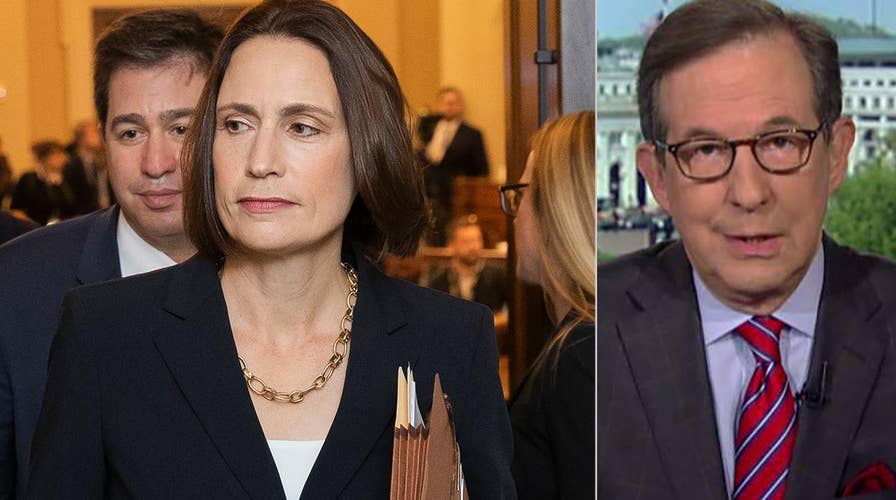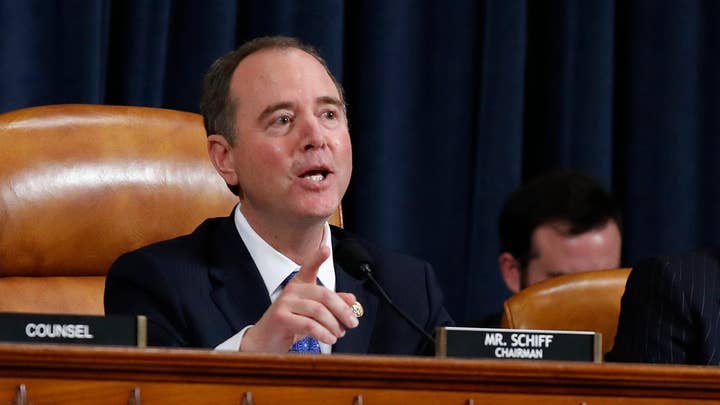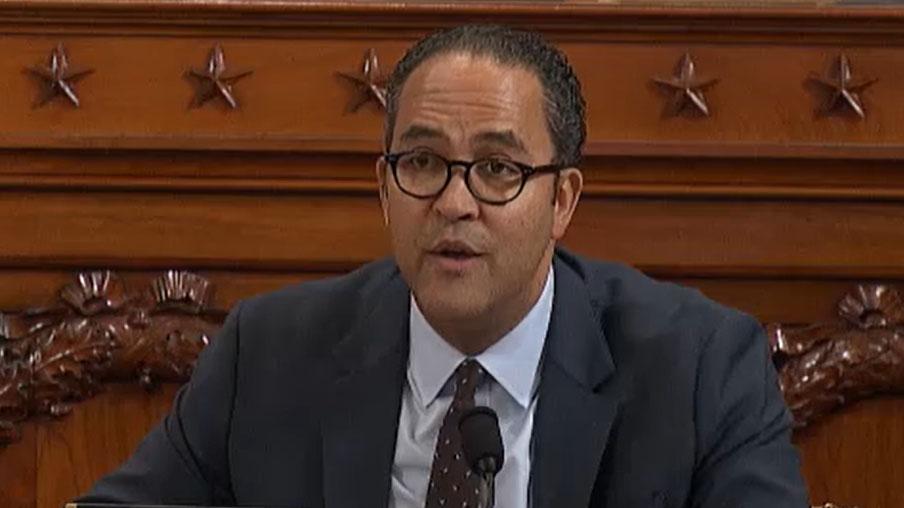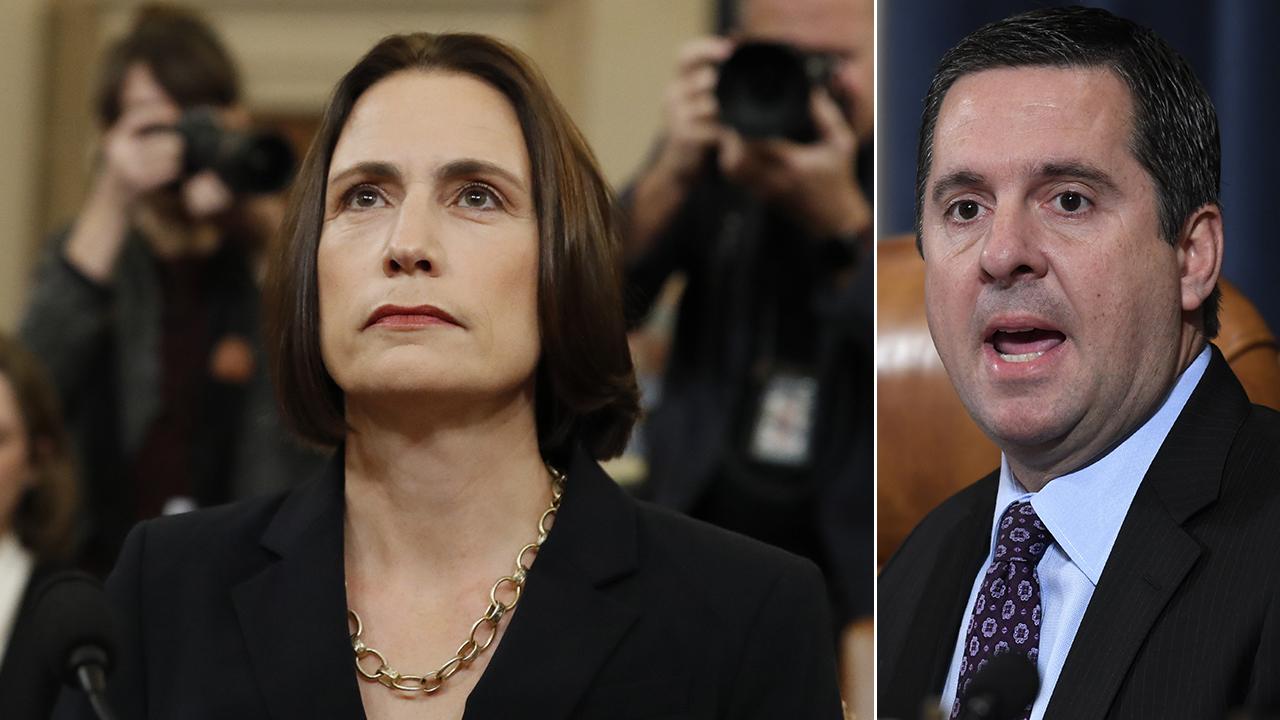Chris Wallace: Censure instead of impeachment seems like 'reasonable compromise'
'Fox News Sunday' anchor Chris Wallace says Democrats standing down on impeachment in favor of a censure might be a more favorable option for lawmakers.
Abuse of power. Bribery. Contempt of Congress. Obstruction of justice.
Those are the four potential articles of impeachment that House Judiciary Committee Democrats could draw up against President Trump as soon as next month, Fox News is told, after all scheduled public hearings before the House Intelligence Committee wrapped up on a testy note Thursday.
At a meeting with top GOP senators and Trump administration officials at the White House on Thursday afternoon, Fox News is told there was a consensus that should Trump be impeached by the House, the GOP-controlled Senate should hold a full trial, rather than ignore the issue.
Reports have surfaced that Republicans were considering even holding a long trial to disrupt the 2020 presidential primaries. Several Democrats seeking to unseat Trump -- including Kamala Harris, Amy Klobuchar, Elizabeth Warren and Bernie Sanders -- are senators who would need to divert at least some of their campaigning time toward a potential trial.
"I think most everybody agreed there's not 51 votes to dismiss it before the managers get to call their case," Senate Judiciary Committee Chairman Lindsey Graham, R-S.C., told Fox News after huddling with other top Republican senators and White House officials. "The idea you would dismiss the trial before they presented the cases is a non-starter. You're not going to get a motion to dismiss."
It remained possible the House Intelligence Committee could schedule more hearings, although no additional hearings are expected during Thanksgiving week. Or, the committee could prepare a report on its findings for the House Judiciary Committee -- which would have the option of holding its own hearings or simply drafting articles of impeachment outright.
Under a resolution passed by House Democrats on the Rules Committee this past October, Trump and the White House potentially would have more rights to defend themselves in Judiciary Committee hearings. For example, attorneys for the president could participate in such hearings. But, in a bid for leverage, Chairman Jerrold Nadler, D-N.Y., would be allowed under the rules to deny "specific requests" by Trump representatives if the White House continued refusing to provide documents or witnesses sought by Democratic investigators.
A possible timetable for impeachment has been unclear. It’s generally thought the Judiciary Committee may hold a "markup" in which it writes articles of impeachment in mid-December. If that were to happen, it's possible the full House could vote on articles of impeachment sometime close to Christmas. That would be a similar timeframe to the impeachment of former President Bill Clinton: The House impeached Clinton just before Christmas in 1998. The Senate trial then began in January 1999.
KEY WITNESSES UNDERCUT CLAIMS OF 'QUID PRO QUO' .... DIPLOMAT THEN CLAIMS 'QUID PRO QUO,' BUT ADMITS IT'S BASED ENTIRELY ON HIS PRESUMPTIONS
However, the House theoretically could pass articles of impeachment, but delay a vote to send them to the Senate for consideration -- perhaps to delay handing Senate Majority Leader Mitch McConnell, R-Ky., control over the proceedings.
Graham, coming out of the White House discussion, added that "we didn't talk about" how to mount a case to "defend the president."
Instead, Graham said, the discussion centered around "how would the trial start -- you know, they'll make a request for witnesses, but that would have to be granted by the Senate, I guess that's the way we did it before."
Graham continued, "My preference was to try to follow the Clinton model as much as possible."
Clinton was acquitted on both perjury and obstruction counts in February 1999, with each vote falling fall short of the two-thirds majority required for removal.
In the Senate, impeachment procedures would allow witnesses to be called by the president's defense lawyers, GOP senators and a team of House Democrats who essentially would serve as prosecutors. The big catch: Republicans would need enough votes from the 53 GOP senators to muster a majority and prevent Democrats from blocking them.
Assuming Republican senators would stay united -- not a guarantee -- Trump's defenders could try refocusing the inquiry by seeking testimony from people like Hunter Biden, the son of 2020 presidential hopeful Joe Biden.
During his July 25 call with Ukrainian President Volodymyr Zelensky that led to a whistleblower complaint touching off the impeachment inquiry, Trump suggested Zelensky investigate Joe Biden's dealings in Ukraine, including the former vice president's successful push to have Ukraine's top prosecutor fired by threatening to withhold $1 billion in U.S. aid while the prosecutor was investigating Burisma Holdings, where Hunter Biden served on the board.
Hunter Biden held that lucrative role despite limited expertise while his father oversaw Ukraine policy as vice president. If Senate Republicans could put forward evidence showing the president's concerns about the Bidens' potential corruption were legitimate, they could undercut Democrats' central argument for impeachment.
On Thursday, Graham strongly signaled that Hunter Biden would be a key GOP focus. He sent a letter to Secretary of State Mike Pompeo requesting documents "related to contacts between Vice President Biden, Hunter Biden, other Obama administration officials and Ukrainian President Petro Poroshenko."
Deputy Assistant Secretary of State George Kent testified behind closed doors last month that he and other officials had qualms about Hunter Biden's lucrative role on the board of Burisma at the time.
STATE DEPT OFFICIAL SAYS BIDEN, BURISMA NOT MENTIONED REGARDING AID HOLDUP
"What Republicans want to do is broaden the story," said David Hoppe, who was chief of staff to Senate Majority Leader Trent Lott, R-Miss., during Clinton's impeachment trial.
And, Sen. Kevin Cramer, R-N.D., said Thursday he'd like Senate testimony from the still-anonymous whistleblower, whose House appearance Democrats have blocked. Cramer said he might also like to hear from both Bidens and House Intelligence Committee Chairman Adam Schiff, D-Calif.
The White House has signaled it will mount an aggressive defense. "When this goes over to the Senate, you know, the people that actually started this thing, they are going to be put on the stand," Eric Trump, the president's son, told reporters Thursday. He said that would include "heads of the Democratic Party."
CLICK HERE TO GET THE FOX NEWS APP
For his part, Trump has argued that U.S. Ambassador to the European Union Gordon Sondland's testimony before the Intelligence Committee was a total exoneration."I just noticed one thing and that would mean it’s all over," Trump said on the White House lawn before reading from handwritten notes taken during Sondland’s testimony. Sondland testified about a conversation with Trump during which he asked the president what he wanted from Ukraine.
"It was a very short, abrupt conversation," the ambassador said. "He was not in a good mood, and he just said, 'I want nothing. I want nothing. I want no quid pro quo. Tell Zelensky to do the right thing.' Something to that effect."
Fox News' Jason Donner, Andrew O'Reilly and The Associated Press contributed to this report.








